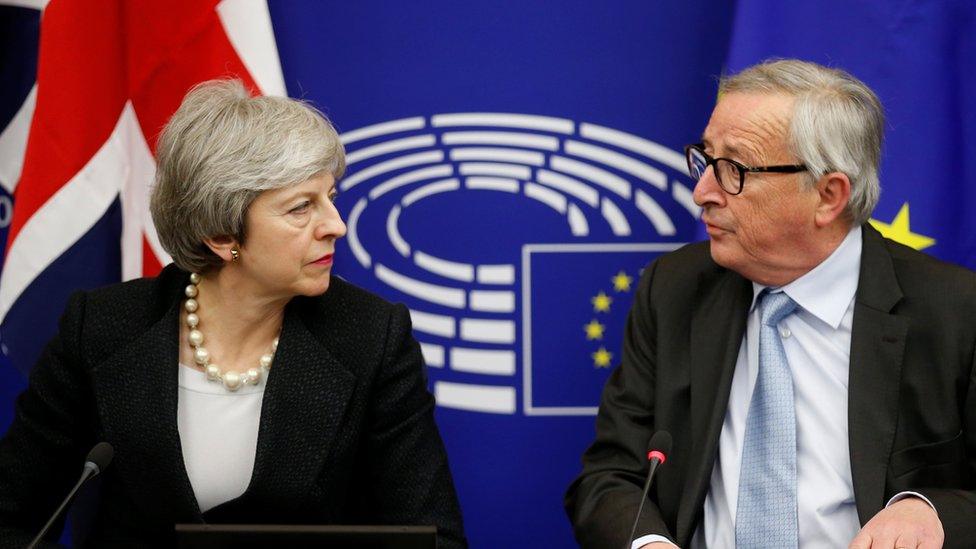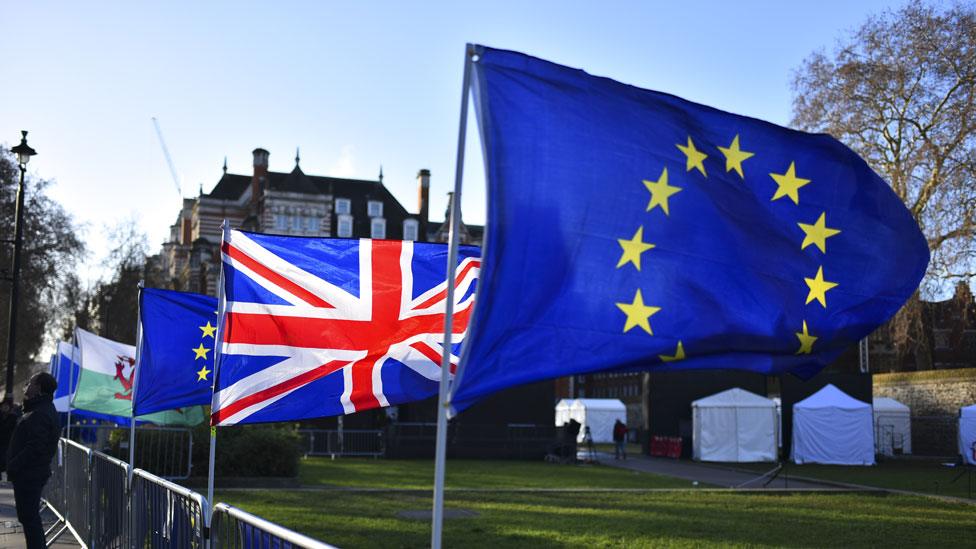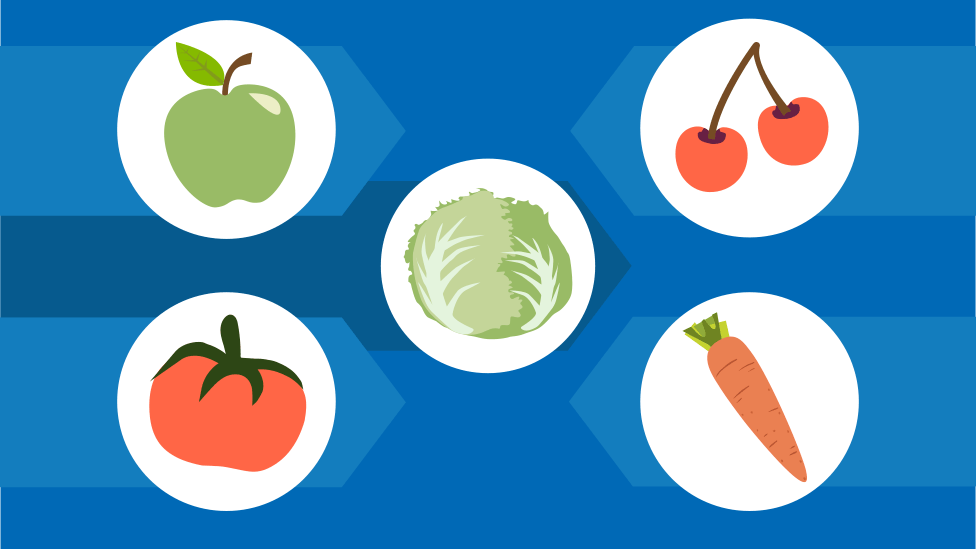Brexit: Will May's changes to her deal satisfy the Brexiteers?
- Published
Theresa May: We have secured what MPs asked for
Monday morning government blues have been replaced by Tuesday morning nervous hopes.
The government does not suddenly expect its Brexit deal to be ushered through at speed, cheered on by well-wishers.
It does, however, believe that Monday night's double act in Strasbourg by Theresa May and Jean Claude Juncker puts it, to quote one cabinet minister, "back in the races".
The extra assurances wrought from weeks of talks with the EU will move some of the prime minister's objectors from the "no" column to the "yes".
And for Mrs May to have achieved nothing from this process might have been terminal, and not just for her deal itself.
But even her most enthusiastic supporters, such as they are these days, don't pretend the prime minister and the government are home and dry.
A rump of Brexiteers will require public assurance from the attorney general, who's said to be agonising, that the update to the EU divorce deal has real meaning - and is not just a rickety set of steps to climb down.
With the vote hours away, the PM begins one of the singularly most important days in her leadership so far with the same challenge that's plagued her every day - will her version of Brexit ever be sufficient for enough Brexiteers?
'Best and final offer'
Part of that answer lies not just in whether they believe in the substance of the assurances the prime minister and her team have bargained with Brussels, but also whether they believe the man who was sitting next to her on Monday - Mr Juncker - who warned MPs explicitly that there will be "no third chance".
It's this deal, no deal, or indeed, no Brexit - almost (at last, her supporters might say), reading supportively from the PM's script.
One senior cabinet minister said 10 days ago it was imperative that the EU made clear whatever was on offer was indeed its "best and final offer".
Mrs May's critics will be asking themselves on Tuesday not just if what she has brokered changes enough, but whether that is, really, really now it?
- Published12 March 2019

- Published12 March 2019

- Published30 December 2020

- Published11 October 2019

